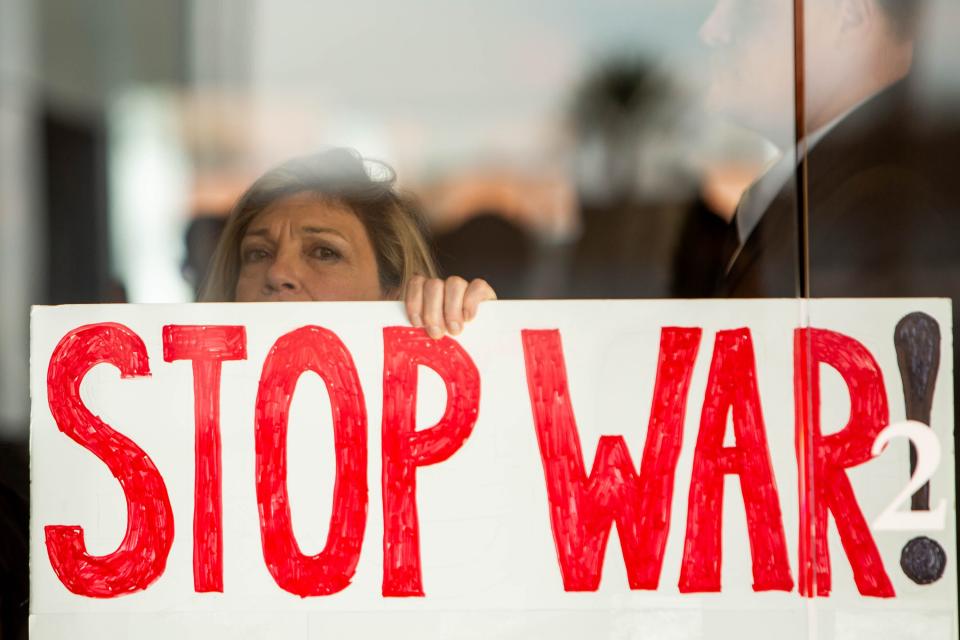Why everyone should call for a permanent ceasefire in Gaza
- Oops!Something went wrong.Please try again later.
Absolutely unmixed attention is prayer.
My 70-year-old mother — religious, faithful and compassionate — asks me why I am so distraught about the conflict in Gaza.
Her surprise is understandable.
I don’t have a faith affiliation. Turmoil is abundant enough in this country to fill my engagement. Plus, I’m a mother of two small children and have an energetic career as an arts advocate and administrator.
I am not an activist.
Close friends of mine are wary of “taking a side.” Individuals who have previously exercised civil disobedience about other issues are reluctant to endorse nonviolent sit-ins, planned arrests and statements of solidarity.
A mentor presses me, “But how long a ceasefire? You must be more specific!”
Who can call for a ceasefire?

What are the qualifications for one who calls for a ceasefire?
Must we be recognized as authoritative on the subject of “stopping a fire” that has resulted in an unfathomable, possibly uncountable, loss and injury of lives?
I’m not asking whether an individual or governing party is able to directly enact a ceasefire. Even the United Nations lacks that authority.
Instead, who is allowed to exercise their humanity by way of a call? Is being unpermitted to call out atrocity detrimental to our personal and collective humanity?
Hamas must be eliminated: Leaders like us should say so
As a child in my west Phoenix elementary school, I was significantly altered by books about the Holocaust. The photos I witnessed will forever occupy a deep space in my spirit.
At my father’s memorial, I read from Paul Celan, “I can still see you: an echo / that can be groped towards with antenna / words, on the ridge of / parting.”
Celan knew how to write about loss and lostness like no other poet I have ever encountered. His parents died in the camps; he died by suicide in middle-age, in Paris.
My 3-year-old daughter, Simone, is named after the Jewish French poet, Simone Weil, who died in 1943 at the age of 34 when her body gave out after limiting herself to the rations given to French soldiers and citizens.
How I have chosen to respond
The images I see on my phone, brought to us by unquestionably traumatized journalists and photographers on the ground, are brutal and demand attention.
In the spirit of Weil, my attention — anyone’s attention — is neither willful nor reason to be self-congratulatory. It is consenting. It is a posture that results in response.
My response has been to call for a permanent ceasefire. My response has been to call elected leaders daily and to learn the names of congressional staff fielding the requests.
My response has been to connect with the local faith community to mourn the collective losses.
To read the histories with extra attention to those from communities that have the least economic and military power. To help restore balance to the storytelling.
To allow the poetry of Jewish and Palestinian poets to echo inside me and direct me as they do. To show my children the faces of people documenting genocide and to describe their labor.
It’s not lost on me that this life is labor, but attention is not that. As Weil once noted, attention is all grace, real prayer.
At an interfaith vigil, I take note: Isabel and Diana are present. They are undocumented, older women. They are holding tealights and praying for a ceasefire.
Heed their call.
Sarah León works at a Phoenix arts agency as a grants administrator and community engagement director. She is a poet and mother of two small children. Reach her at sarah.e.leon@gmail.com.
This article originally appeared on Arizona Republic: Ceasefire in Gaza is something everyone should want

